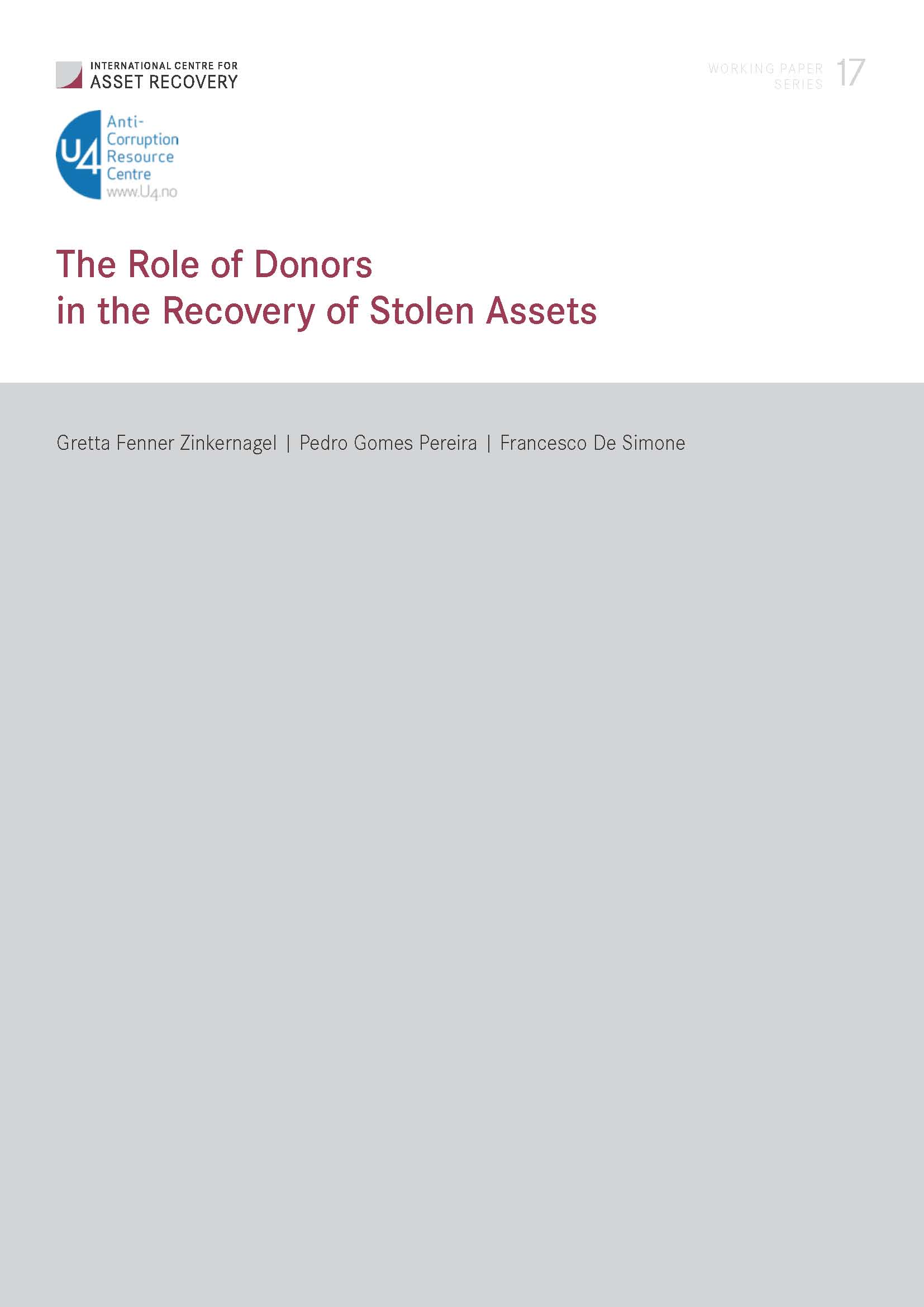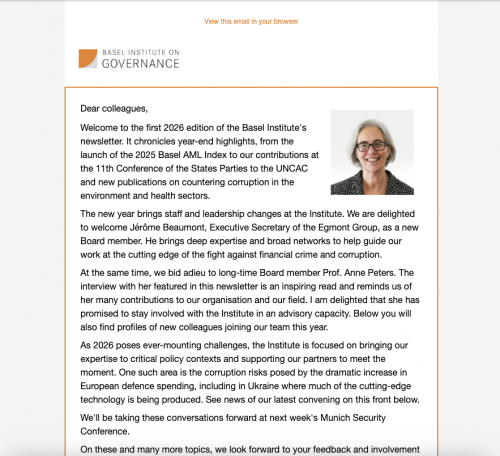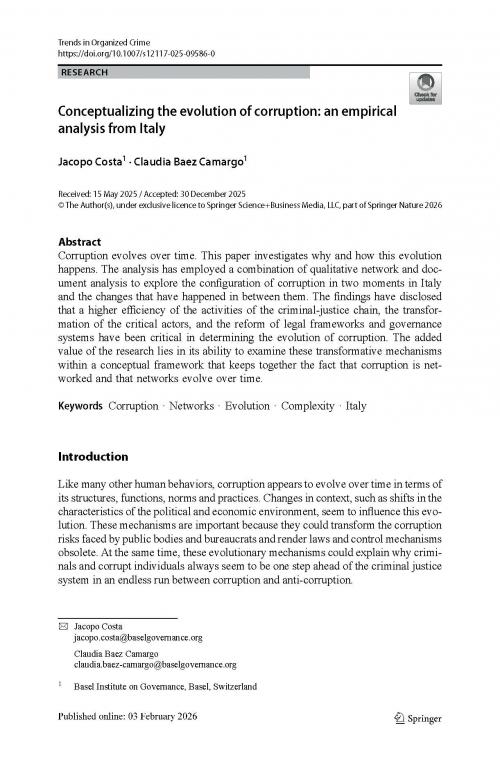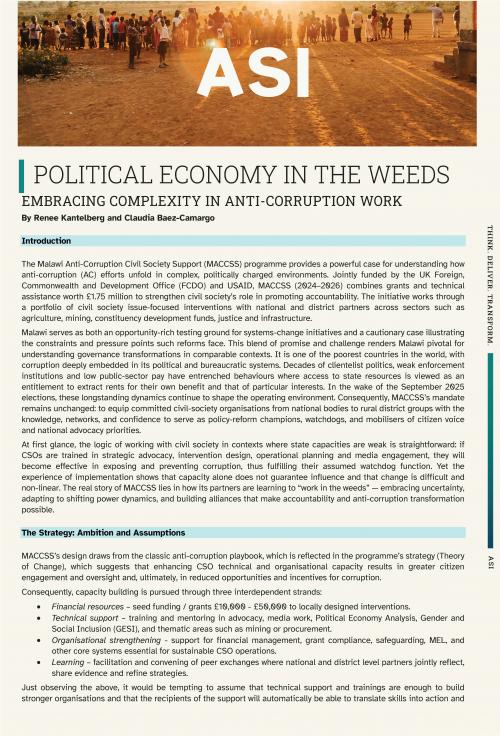Working Paper 17: The role of donors in the recovery of stolen assets
Financial crimes such as corruption, fraud, and embezzlement generate significant profits, often at the expense of the public budget. These proceeds of crime are usually hidden outside of the country where the crime was originally committed, and laundered through complex financial and commercial transactions, often spanning across numerous jurisdictions.
Asset recovery – the process of identifying, restraining, seizing, and repatriating these assets to the countries from whence they were originally stolen – is one of the greatest challenges for the global anti-corruption movement. Asset recovery is also an essential development challenge, as it usually involves repatriating funds back to a developing country where they were stolen, and where they could be used to support development projects.
As a bridge between aid recipient and donor countries, donor agencies are uniquely positioned to support asset recovery initiatives. Interesting examples are emerging of how donors can support asset recovery by:
- supporting international standards and initiatives;
- providing technical assistance and capacity building (most often through third parties);
- encouraging policy coherence at home;
- helping build political will; and
- providing assistance during the asset repatriation phase.
About this Working Paper
This paper is part of the Basel Institute on Governance Working Paper Series, ISSN: 2624-9650.
Links and other languages




